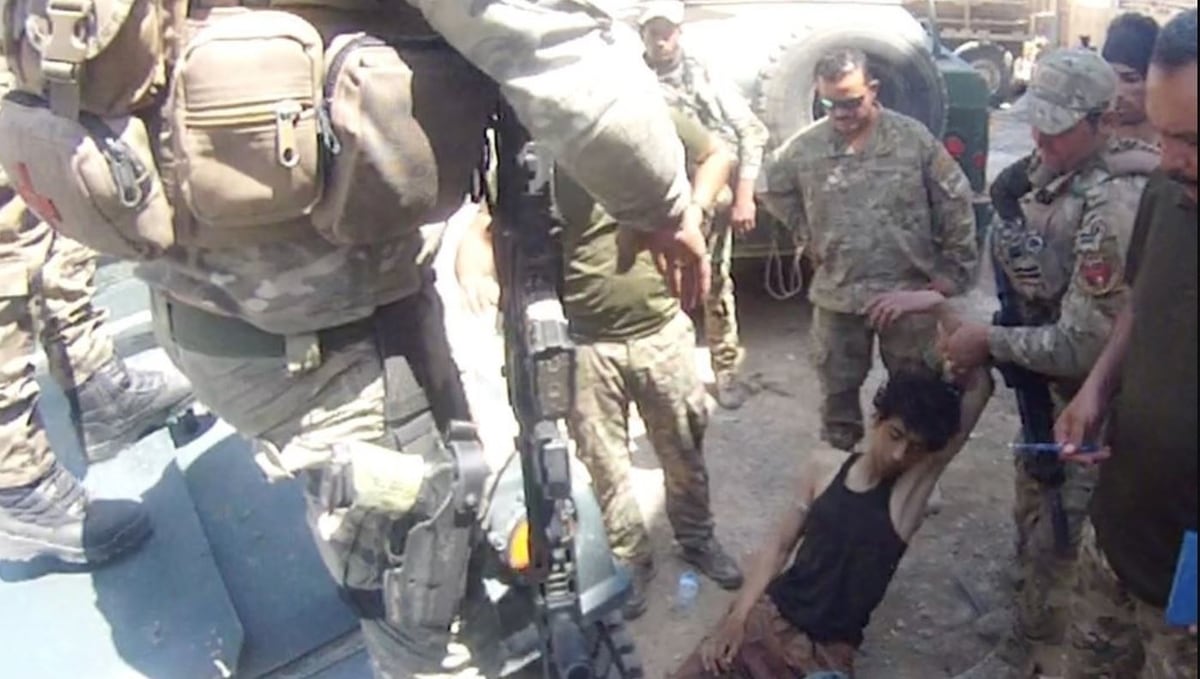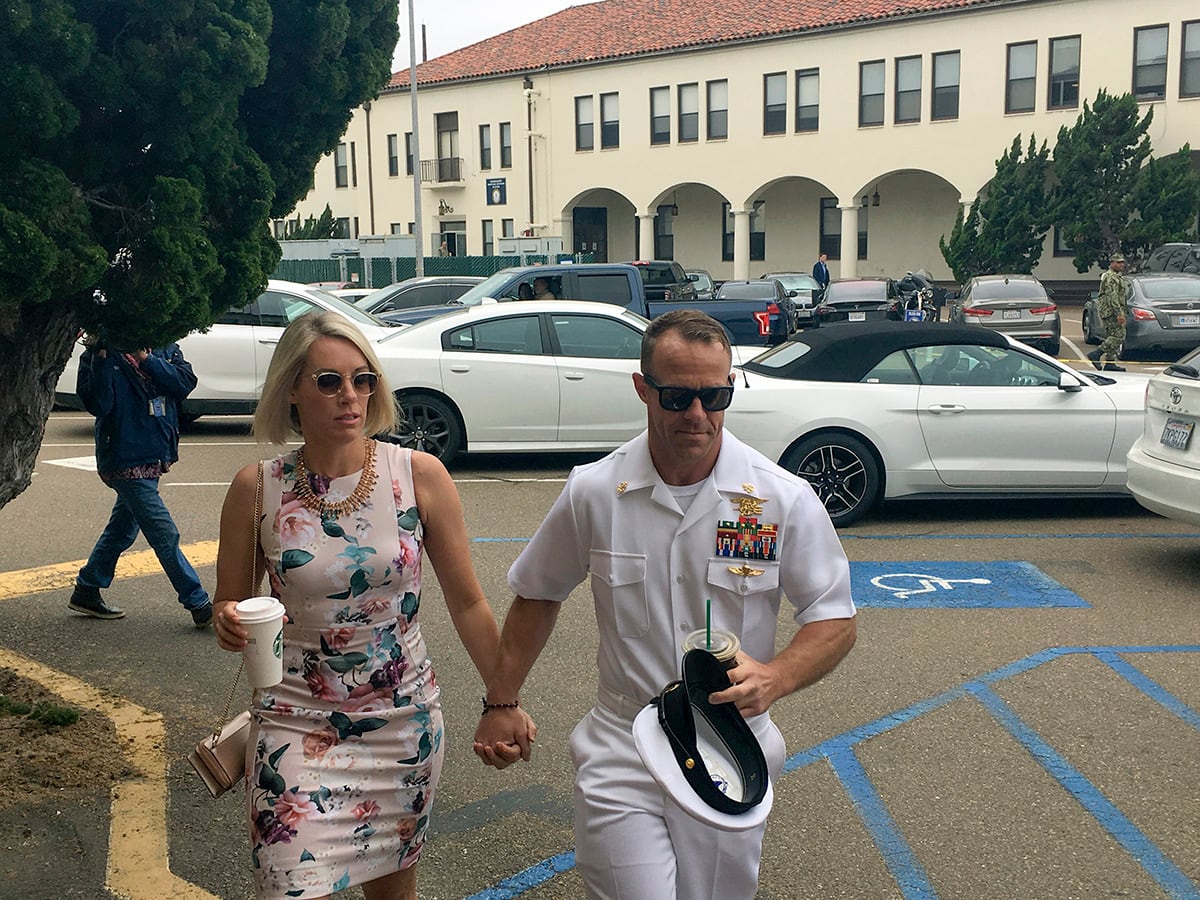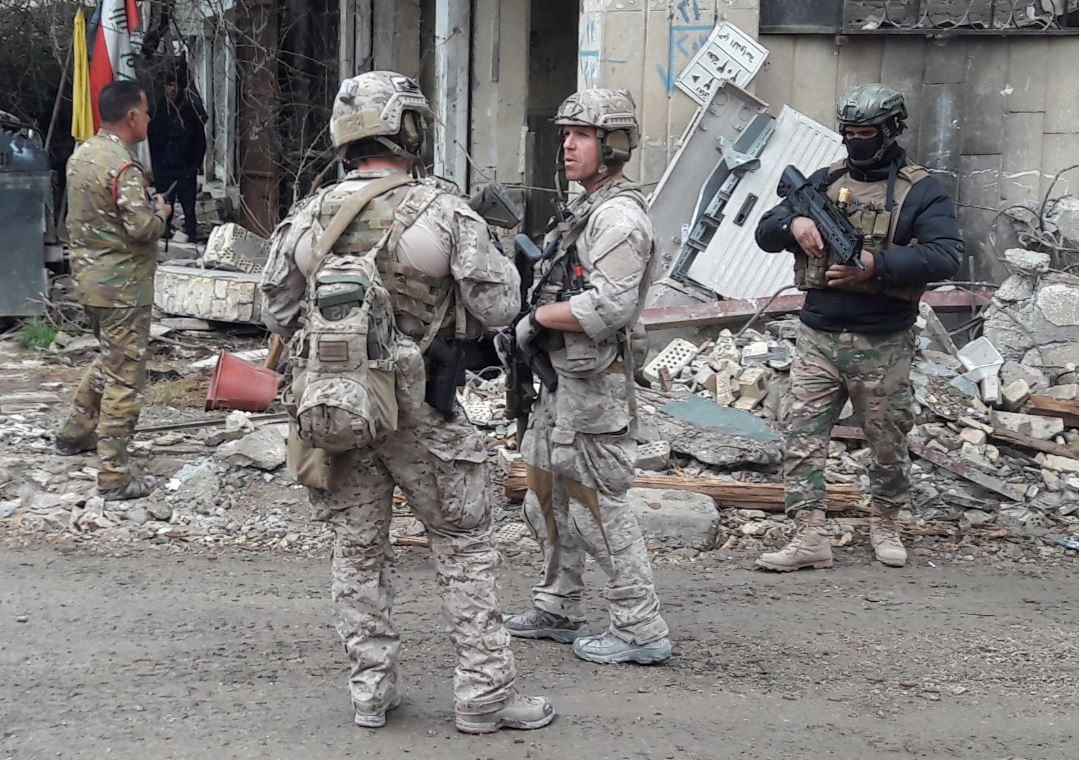Internal messages provided to Navy Times raise questions about how the military is handling the confession uttered by a Navy SEAL last week that he, not Special Warfare Operator Chief Edward “Eddie” Gallagher, killed a wounded Islamic State prisoner of war in 2017.
At issue is whether military authorities will go after Special Warfare Operator 1st Class Corey Scott for claiming that he plugged the breathing tube of the Islamic State militant outside Mosul so that the enemy fighter wouldn’t be tortured to death later by Iraqi security forces — even if that was the truth.
Scott’s bombshell testimony undercut the Navy’s premeditated murder charge against Gallagher, 40, which hinged on witnesses confirming that he stabbed to death the detainee.
One SEAL, Special Warfare Operator Chief Craig Miller, alleged that Gallagher plunged a knife into the prisoner’s neck multiple times, although other details that day appeared fuzzy.
But Scott testified that he was the real killer, not Gallagher. Scott said that the chief appeared to stick the knife blade below the militant’s collar bone, not the neck, and the wound wasn’t fatal.
A third SEAL was expected to testify that Gallagher stabbed a corpse because the detainee already had died from wounds suffered hours earlier, but in the wake of Scott’s stunning confession, that witness was not called to testify.
The prosecution instead called a forensic pathologist, Dr. Frank Sheridan, who said he couldn’t determine a cause of death because there was no body to autopsy and little other evidence to use. He wasn’t even sure if the detainee had been stabbed.
RELATED

A SEAL medic, Scott testified that he told investigators and prosecutors that the prisoner died from asphyxiation during an interview, but none of them appeared to want to clarify how that squared with a lethal stabbing, and Scott never volunteered more information.
Military officials forced him to interview with Naval Criminal Investigative Service agents and prosecutors, who wielded immunity deals from the Navy Region Southwest, the U.S. Department of Justice and Naval Special Warfare Group 1 commodore Capt. Matthew D. Rosenbloom to hurdle his constitutional right to avoid self-incriminating testimony when he later took the stand.
They offered Scott and other witnesses testimonial immunity, which prevents authorities from later prosecuting him based on what he said under oath in court, but the deals didn’t shield him from what others might say or other pieces of evidence discovered by investigators.
On Friday, Scott’s Texas-based attorney — Brian Ferguson — sent a letter to Capt. Donald C. King, the Staff Judge Advocate representing Navy Region Southwest’s commander Rear Adm. Bette Bolivar, seeking transactional immunity for Scott and “multiple witnesses” he represents and who were expected to testify during the ongoing trial.
Transactional immunity would go beyond testimonial immunity and shield witnesses from prosecution based on any evidence dredged up in the case.
RELATED

To Ferguson, his clients already had “de facto transactional immunity” from prosecution. For example, they were protected because NCIS Special Agent Joseph Warpinski and former lead prosecutor Cmdr. Christopher Czaplak told several witnesses that authorities were only going after Gallagher, not them.
That formed a backdrop to their testimony, and the government shouldn’t renege on the promises just because witnesses didn’t say under oath what they wanted them to say, Ferguson seemed to suggest.
On Tuesday in an email to Ferguson, Gallagher’s defense team and other attorneys, including one representing Naval Special Warfare, King seemed to backtrack, saying that Rear Adm. Bolivar’s command never contemplated anything more than testimonial immunity for the SEAL witnesses.
As for Scott, King said he “reportedly testified directly contrary to previous official statements — thus exposing him to prosecution."
“If you’d like further clarification regarding the parameters of the Convening Authority’s grant of immunity, please give me a call," King added.
So Navy Times called him.
King said that he “can’t comment on any of it.”
When asked who in the Navy could clarify what he told attorneys, he said “no one” because officials “don’t typically discuss charging decisions" or “ongoing investigations.”
He added, however, that he wasn’t saying Scott was under investigation or what he was suspected of doing.
Perjury — intentionally lying on the stand — would invalidate any immunity deal forced on Scott, but King’s email seemed to suggest that he’d be prosecuted for statements allegedly uttered to investigators and prosecutors before he took the stand during interview sessions.
Article 107 of the Uniform Code of Military Justice outlaws false official statements that are intended to deceive officials. But it remains unclear whether Scott lied or authorities simply ran a shoddy investigation that failed to ask him the right questions.
Ferguson declined comment when reached by Navy Times.

Inside the Naval Base San Diego courtroom on Wednesday, Gallagher’s civilian defense attorney, Timothy Parlatore, urged judge Capt. Aaron Rugh to weigh in on the latest controversy in the case.
Rugh said those who had testified could only be prosecuted if they lied on the witness stand, and not for any other statements.
“I think it’s pretty clear that those statements can’t be used for any purpose other than perjury that occurred in this courtroom,” Rugh said.
Julie Watson and Brian Melley of the The Associated Press contributed to this report.
Prine came to Navy Times after stints at the San Diego Union-Tribune and Pittsburgh Tribune-Review. He served in the Marine Corps and the Pennsylvania Army National Guard. His awards include the Joseph Galloway Award for Distinguished Reporting on the military, a first prize from Investigative Reporters & Editors and the Combat Infantryman Badge.





